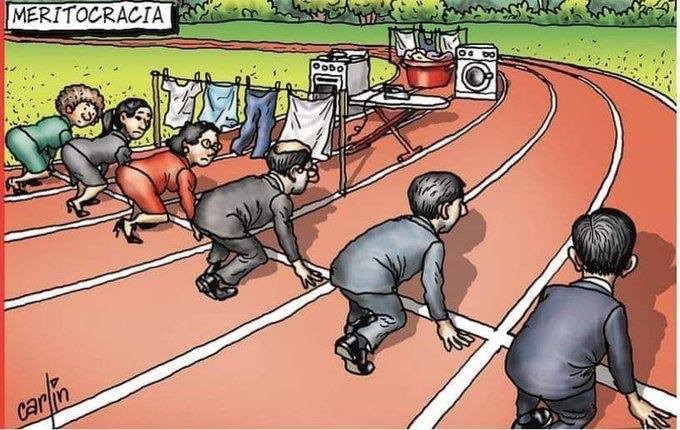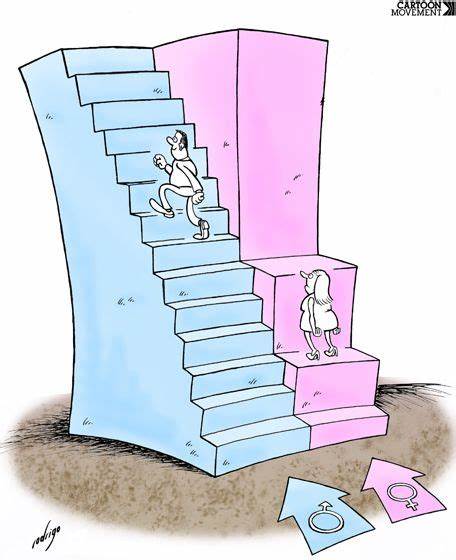Results from the IWD and IMD surveys
The Athena SWAN team carried out surveys related to International Women’s Day (IWD) and International Men’s Day (IMD) that gave us some insights into how some of the staff team at Kent think about equality in the workplace. In total, 86 people answered the women’s day survey (March 2019) and 68 people the men’s survey (November 2018). Out of these 154 respondents, 7 identified as non-binary, preferred not to answer or preferred to use their own term.
Whilst the surveys targeted people within the binaries of ‘men’ and ‘women’, we are aware of and value the challenges faced by those not comfortable or adhering to these binaries. In many questions, the respondents answered similarly regardless of gender, however, in some cases there were discernible differences between male and female-identifying people’s responses.
The sample size of these surveys was too small to draw generalised conclusions about staff perceptions at the University of Kent, however the comments and responses do suggest to some dominant strands of thought that could be valuable to explore further.
IWD is fairly well-known, and across the UK many institutions place importance on this day and organise many events to raise awareness about inequalities that women face in the workplace. However, the male equivalent IMD is less known (only 15% of our respondents felt it was important). One thing that was evidently clear from the results of these surveys was that many women still feel treated unfairly at work, and that awareness of unfair or sexist treatment lies predominantly with those who experience them. Many also raised how gender inequality is only one of the intersectional inequalities that exist at the university, with race and class being prevalent as well.
“Senior management is overwhelmingly male, which does not reflect the overall demographic”
(male respondent)
Have you been troubled by gender-related things in the workplace?
A great majority of both men and women (approximately 70% each survey) stated that they ‘sometimes’ have felt troubled by the things they hear or see in the workplace relating to gender. From the IWD survey in particular, there were many written responses containing examples of sexist experiences that respondents had witnessed or experienced first-hand at Kent. For example, some mentioned an incident where a group of women talking were referred to by their male manager as a ‘mother’s meeting’, others talked about how they were often addressed as ‘girls’ in professional environments.
Some mentioned that male colleagues with less experience had been promoted over them or been paid more upon starting their positions.
A few comments raised issues with women in jobs graded 1-6 being treated as ‘secretaries’, met with condescending attitudes from more senior men, while one respondent stated “I see too many men in positions of power talking down to women”. From the IMD survey on this question, respondents stated that they feel there are inequalities due to women being ‘allowed’ more freedom in childcare than men.
“Culture of sexism – very subtle – but lots of assumptions and judgments made about women and their suitability (or not) for leadership roles that are underpinned by troubling sexism/misogyny”
(female respondent)

Do you think opportunities and benefits are equally available to men and women?
This question divided opinion. 62% of men answered yes, whereas women’s opinions were equally distributed between ‘yes’, ‘no’ and ‘don’t know’. In the written comments, men highlighted that they have seen jobs advertised that promote women applying for positions, which they have found discouraging to apply for.
Both men and women mentioned that there are disproportionately more men in senior leadership roles at the university,
which is problematic, that childcare is a major inhibitor for career progression and that this mostly falls on women. However, some men also highlighted that parental policies often appear to target women, and thereby discourage men from staying home with their children.
Causes and solutions to the gender pay gap
Opinions between men and women were similar in regards to this question. Most raised childcare, flexible working and part-time work as responsible for the gender pay gap. However, some men stated that The University is a meritocracy and that gender equality is not really an issue anymore. A minority of comments from men also raised a concern with the university being a “pro women culture” and that the gender pay gap is a myth, showing a misunderstanding between the gender pay gap and equal pay for equal work (For information about the gender pay gap, see https://www.equalityhumanrights.com/en/advice-and-guidance/what-difference-between-gender-pay-gap-and-equal-pay).
Through the comments, an array of issues were raised that allow inequalities to perpetuate in the University culture. These are some examples:
- Childcare falling on women more often than men
- Part-time work preventing possibilities for senior positions and unconscious bias in recruitment and promotions
- Lack of flexible working options for professional services staff
- Lack of defined career path for PS staff (who are mostly women)
- Women lacking confidence and being cautious in applying for promotions
- Lack of female role models
- Overrepresentation of male stereotypes in leadership positions
- Women have less mentoring and support compared to the ‘old boy’ network
Some also mentioned that the issues prevalent all stem from a patriarchal society as well as historical inequalities in the education system and management in HE institutions.
Possible solutions to the gender pay gap that the survey respondents suggested included particularly empowering young women and showing suitable role models in leadership roles, assigning mentors and have more transparency in regards to salaries. It was also suggested that systematic attention to the achievements of male and female colleagues on comparable pay scales is needed. In regards to childcare as a barrier to career progression, it was suggested that more attention is needed on policies regarding childcare cover and the ability to work flexibly in order to manage childcare, school runs and nursery timings and also ensure that there are appropriate facilities and flexibility to manage breastfeeding.

Would you like to work more flexibly if allowed and would you be comfortable to ask for this?
Around half of respondents said that they would like to work more flexibly, and around a third stated that they already do. However a third of women and a quarter of men would not feel comfortable asking for flexible hours. Responses vary greatly between academic and professional services staff, and also between pay grades, which is highlighted in the comments.
PS staff have stated that their jobs tend to require 9-5 presence and that flexible working is mostly at the mercy of their line manager,
whereas academic staff feel they are at the mercy of the WAM and that even “part-time work” tends to require full-time hours, even if they have the possibility to work from home sometimes.
PS staff commented that the flexible working policy does not work and that requests are often denied. Many comments did also reflect that respondents were happy about their ability to have such flexibility in their work and commended Kent as an employer in this sense.
Views on support available for carers at UoK
Men who answered this question tended to point out that support for men who have caring responsibilities in particular is very poor. Many have highlighted that support for parents appears to be aimed at women. Many who answered the question stated that they were not parents and so were not aware of what might be available. The short period of paternity leave available was mentioned, and also that many were unaware of what rights they might have as a father, and that such policies appear to be ‘invisible’.
Women who answered the same question also pointed out that there needs to be more visibility of fathers and to challenge the stereotype that women are the predominant carers/primary caregivers.
The issue of emergency childcare for when your child is sick was also mentioned frequently, as well as a pervasive view that support varies greatly between line managers. Additionally, some women raised that there might be support available for parents, but that less consideration is given to carers of elderly parents.
A few also mentioned the need for additional spaces for breastfeeding and milk pumping. A suggestion was to create a parent’s network. The ‘enhancement weeks’ were equally criticized by both men and women and many comments raised that this is an imposed change that was made without consideration for EDI implications.
How much do you know about Athena SWAN and how has it impacted on you?
Both men and women (around 43%) stated that they have ‘limited’ knowledge of the Athena SWAN gender equality charter, and approximately 25% stated that they had ‘good’ knowledge. 21% of female respondents answered that Athena SWAN had an impact on them, whereas for men this figure was 15%. Approximately half of all respondents did not feel that Athena SWAN had an impact on them, and many responded that they were not sure. Among the comments the predominant concern is that Athena SWAN is merely a tick box exercise that does not enable or create real culture change.
Some men stated that they did not feel it was relevant to them and that the charter appeared to be a mechanism for the positive discrimination for women, and some felt that Kent is a meritocracy and that therefore the issue is not relevant.
On the contrary some of the comments from women mentioned that they felt happy that feminism and Athena SWAN objectives are elevated as important issues and that events are organised and awareness is raised due to the charter.
Importantly, many comments in both surveys also mentioned that what needs to be high on the agenda for Athena SWAN and for the university is not just gender equality, but also intersectionality. In particular inequalities stemming from race, ethnicity, disability, sexuality, class and generally socio-economic backgrounds, which many perceived to be of more or equal importance to gender. Many were pleased to see a survey regarding Athena SWAN, but comments also revealed that there is great ambivalence in regards to whether real action and necessary cultural change will result from the work carried out in this area.
